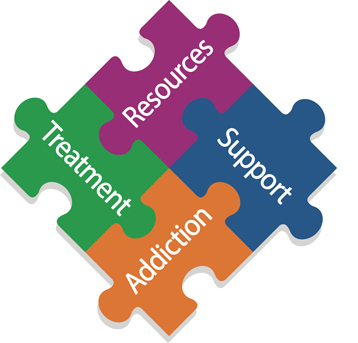Effective Medication-Assisted Treatment can reduce cravings in recovery.
Effective Medication-Assisted Treatment can reduce cravings in recovery.
Blog Article
Key Kind Of Addiction Treatment: Browsing Alcoholism Recuperation Via Evidence-Based Practices
In the realm of alcohol addiction recovery, the combination of Cognitive-Behavioral Therapies (CBT) and Medication-Assisted Treatment (MAT) marks a critical stride towards efficacy and patient-centered treatment. When these evidence-based techniques are supplemented with alternative approaches, such as mindfulness and dietary assistance, they develop a durable framework for treatment.

Comprehending Cognitive-Behavioral Treatments in Alcoholism Recovery
As alcoholism recovery evolves, cognitive-behavioral treatments (CBT) have actually emerged as a cornerstone in effective treatment strategies. CBT runs on the principle that maladaptive actions, such as extreme drinking, are driven by useless thoughts and ideas. Treatment focuses on identifying these adverse patterns and teaching people exactly how to test and replace them with even more useful reasoning. This treatment is not just about taking care of behaviors yet also improving cognitive processes, which can bring about sustained soberness. Sessions normally involve sensible skills training, such as dealing strategies for taking care of cravings and anxiety management methods. The versatile nature of CBT allows it to be tailored to the one-of-a-kind needs of each person, enhancing its efficiency in the realm of alcohol recovery.

The Role of Medication-Assisted Therapy in Taking Care Of Withdrawal and Yearnings
Medication-assisted therapy (FLOOR COVERING) plays a vital duty in the management of withdrawal signs and food cravings in people recovering from alcohol addiction. Floor Full Article covering entails the usage of FDA-approved free drug treatment programs medications such as naltrexone, disulfiram, and acamprosate, which assist lower the physical and psychological urges to consume, assisting in a smoother and extra manageable detoxification process. These medicines run by modifying mind chemistry to diminish the rewarding effects of alcohol, support mood swings, and reduce physical reliance. This medicinal strategy, when incorporated with therapy and behavior modifications, boosts the opportunities of lasting recuperation. Such assimilation sustains the retention in therapy programs and adds dramatically to preventing relapse, noting floor covering as a keystone of reliable alcoholism therapy.

Integrating Alternative Methods With Conventional Therapies for Comprehensive Care
While medication-assisted treatment gives a foundational technique to alcohol recovery, integrating all natural methods with typical therapies uses an extra extensive treatment model. By combining alcohol rehab houston these varied strategies, therapy programs can customize interventions to private requirements, advertising a more lasting recuperation. This integrated strategy emphasizes the value of a diverse strategy in the effective therapy of alcohol dependency.
Verdict
In conclusion, reliable alcohol addiction recuperation leverages a combination of evidence-based practices. Cognitive-Behavioral Treatments reframe negative reasoning, while Medication-Assisted Treatment deals with the physical challenges of withdrawal and desires.
Report this page